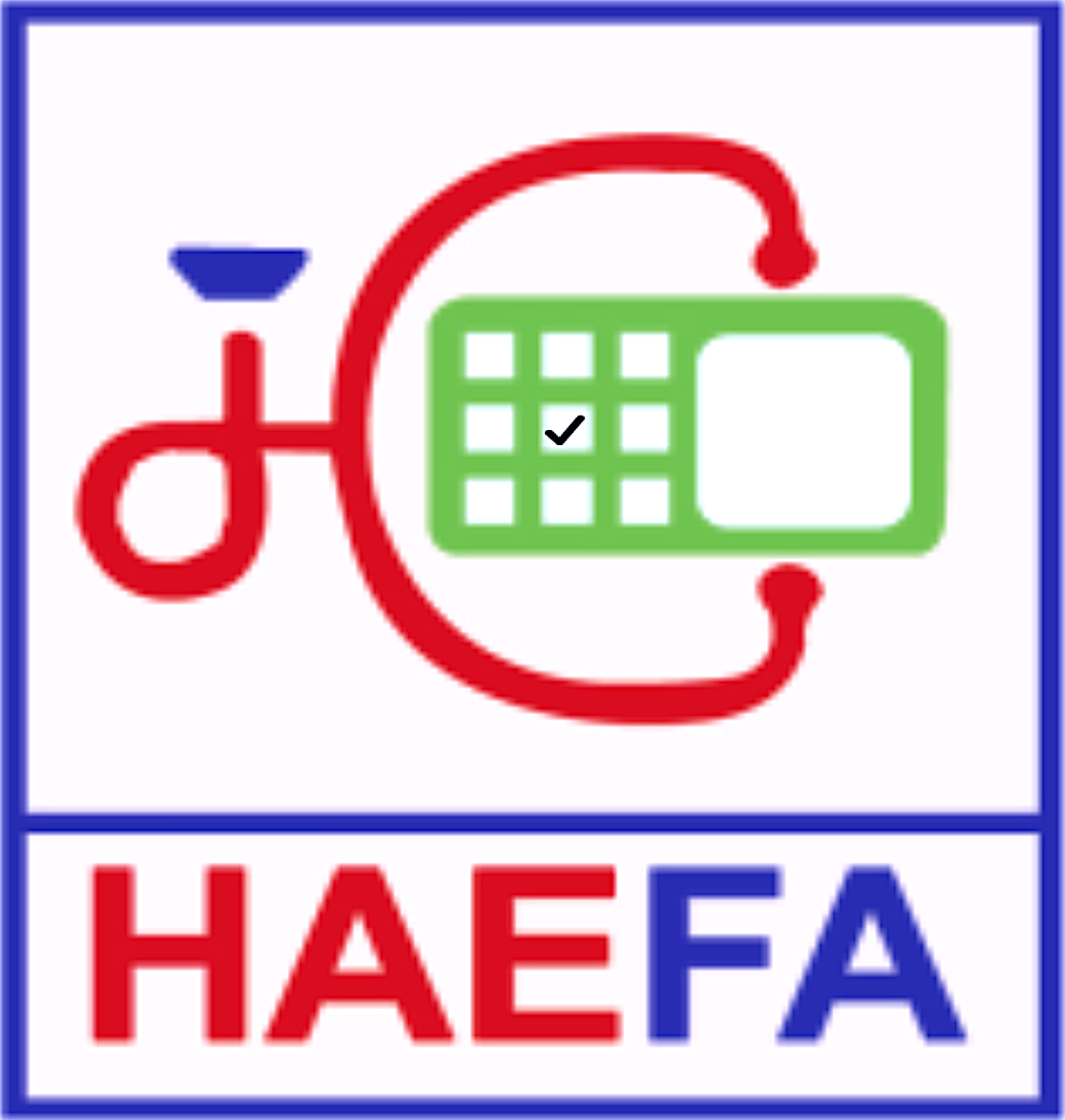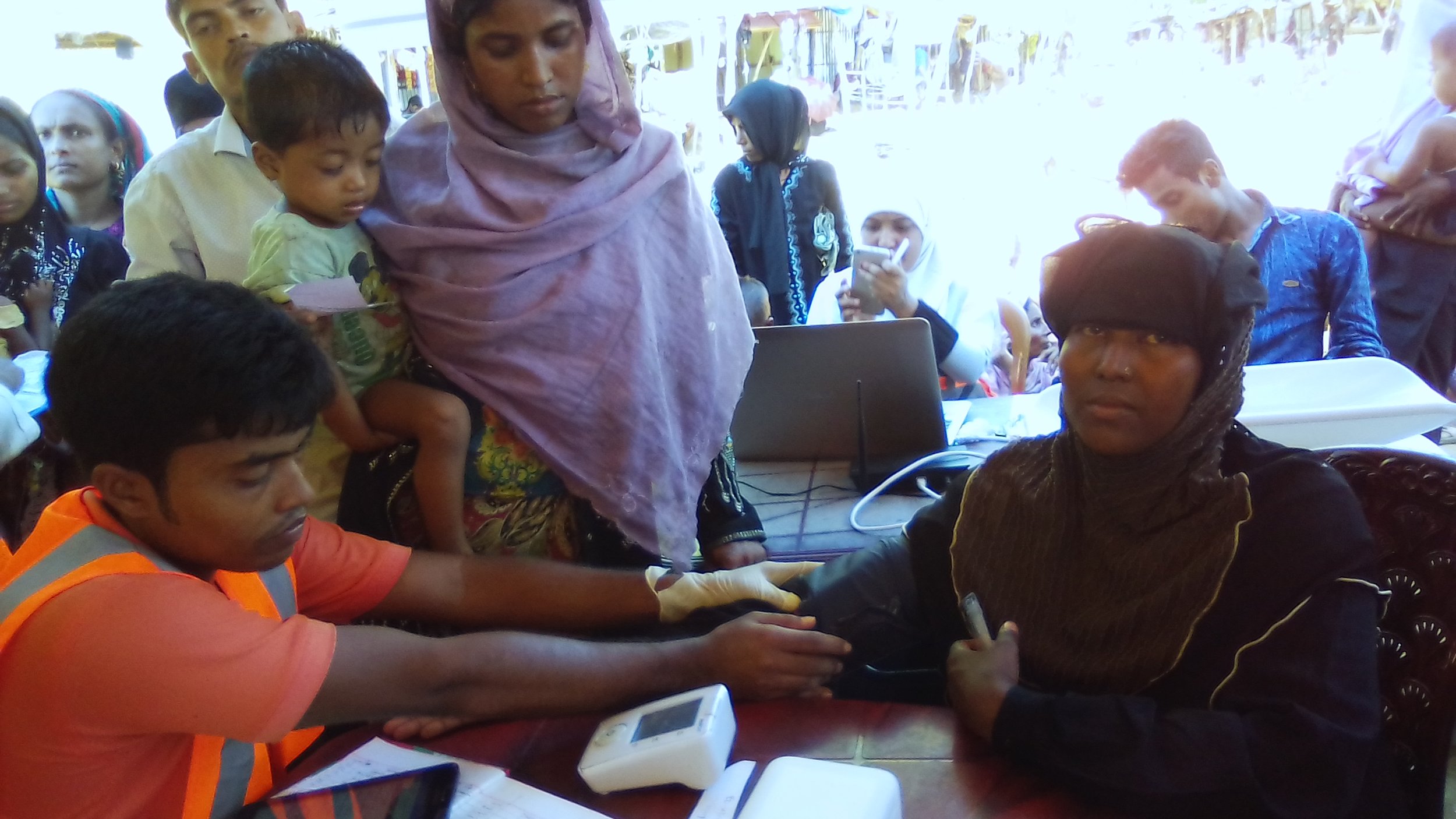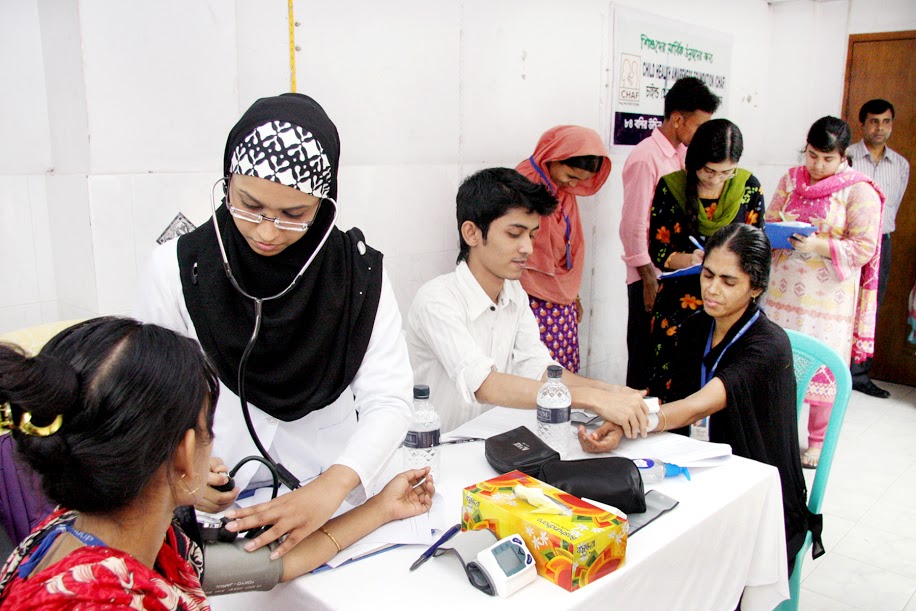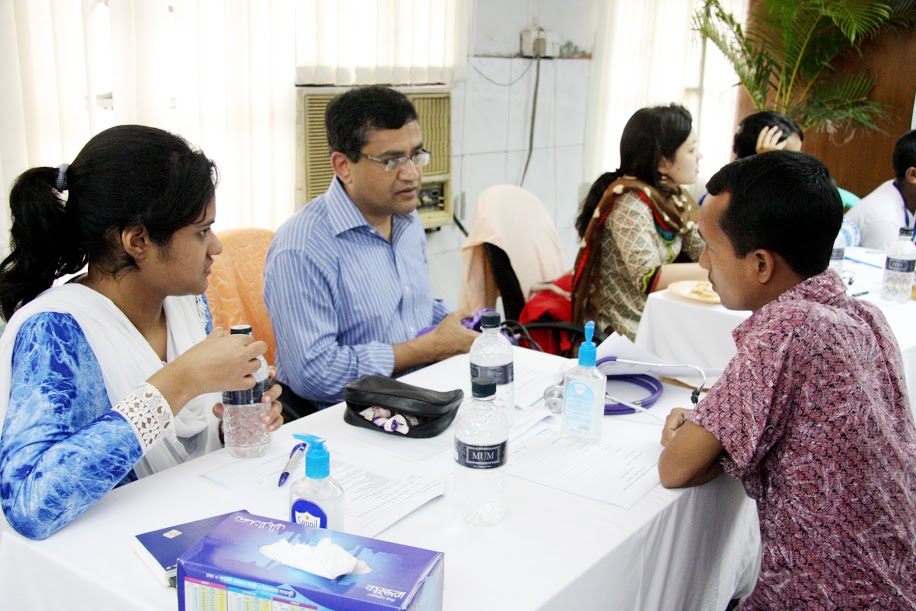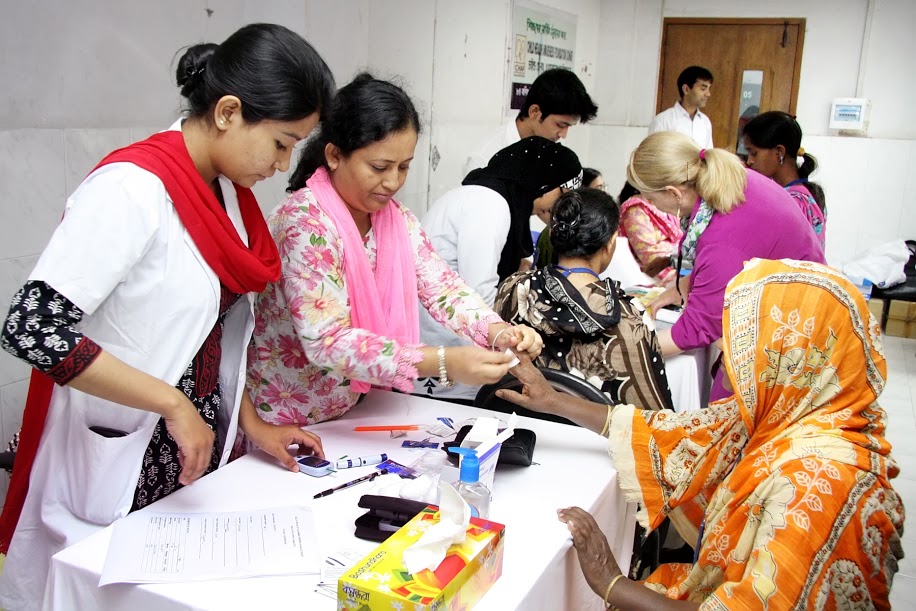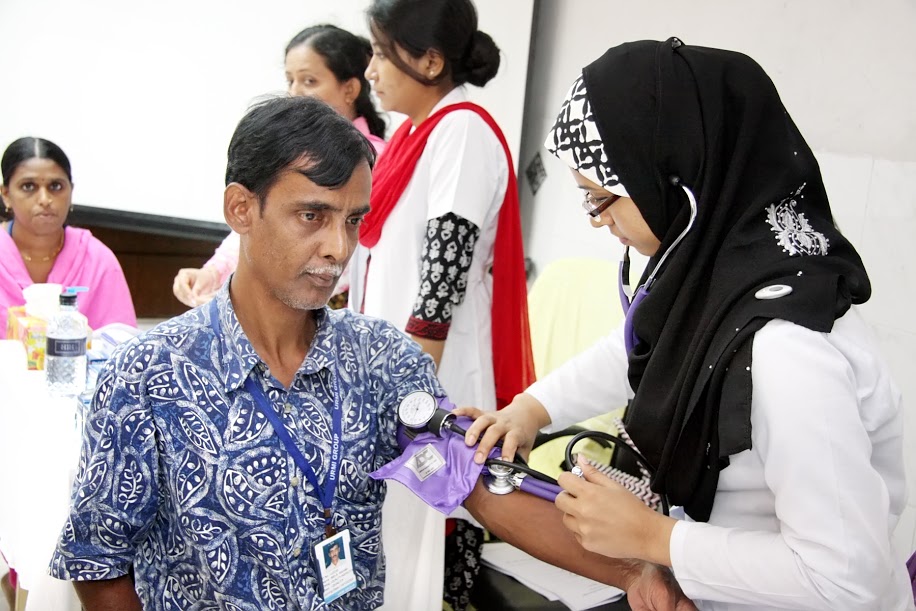Our Story
The event that sparked the idea for HAEFA, and how it has expanded since then
History
Health and Education for All (HAEFA, pronounced Hi-fa) is a US-based 501(c)(3) tax-exempt non-profit founded in 2012 as a response to the poor health and working conditions of garment workers in Bangladesh. Dr. Ruhul Abid, a researcher at the Warren Alpert Medical School, formulated the idea of HAEFA along with Dr. Rosemary Duda while at Harvard Medical School in 2011 and then founded HAEFA in 2012. HAEFA designed a screening program for common noncommunicable diseases (NCDs) among factory workers. The screenings focus on diabetes, hypertension, chronic obstructive pulmonary disease (COPD), malnutrition, pregnancy and related complications (preeclampsia), and tuberculosis (TB). In order to gain the employers’ cooperation, HAEFA had to ensure that the workers were not wasting productivity hours by doing the screenings. The format that resulted was a brief series of tests that took in their entirety seven minutes to complete.
HAEFA developed a model made up of four stations: registration; height and weight; blood pressure and finger stick for blood sugar and hemoglobin analyses; and physician examination. Each station uses a handheld Android tablet as an EMR with software programmed by HAEFA called NIROG (meaning “absence of disease” or “good health”) to collect the information of each patient under a unique identifier. The data is then uploaded to the cloud and can be accessed by authorized healthcare providers from anywhere in the world. HAEFA has screened 25,000 garment factory workers since its founding in 2013 using the entirely paperless NIROG EMR system. With the influx of Rohingya refugees to Bangladesh in 2017, HAEFA shifted its attention to this vulnerable population and began using and modifying the system developed for the garment workers to screen the Rohingya people for NCDs.
